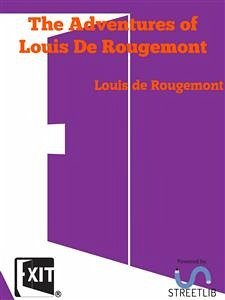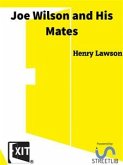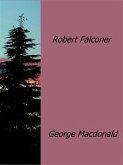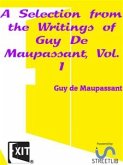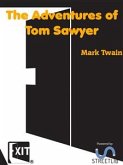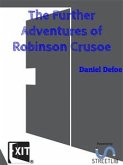CHAPTER I
I was born in or near Paris, in the year 1844. My father was a fairly prosperous man of business—a general merchant, to be precise, who dealt largely in shoes; but when I was about ten years old, my mother, in consequence of certain domestic differences, took me to live with her at Montreux, and other places in Switzerland, where I was educated. I visited many of the towns near Montreux, including Lausanne, Geneva, Neufchatel, &c. The whole of the time I was at school I mixed extensively with English boys on account of their language and sports, both of which attracted me.
Boys soon begin to display their bent, and mine, curiously enough, was in the direction of geology. I was constantly bringing home pieces of stone and minerals picked up in the streets and on the mountains, and asking questions about their origin and history. My dear mother encouraged me in this, and later on I frequently went to Freiburg, in the Black Forest, to get a practical insight into smelting. When I was about nineteen, however, a message arrived from my father, directing me to return to France and report myself as a conscript; but against this my mother resolutely set her face. I fancy my father wanted me to take up the army as a career, but in deference to my mother’s wishes I remained with her in Switzerland for some time longer. She and I had many talks about my future, and she at length advised me to take a trip to the East, and see what the experience of travel would do for me. Neither of us had any definite project in view, but at length my mother gave me about 7000 francs and I set out for Cairo, intending eventually to visit and make myself acquainted with the French possessions in the Far East. My idea was to visit such places as Tonkin, Cochin-China, Madagascar, Mauritius, Seychelles, &c. My mother was of the opinion that if I saw a bit of the world in this way I would be more inclined to settle down at home with her at the end of my wanderings. The primary cause of my going away was a little love episode. Whilst at Montreux I fell in love with a charming young lady at a boarding-school near my home. She was the daughter of some high personage in the court of Russia—but exactly what position he held I cannot say. My mother was quite charmed with the young lady and viewed our attachment with delight. But when my father heard of the matter he raised a decided objection to it, and ordered me to return to France and join the army. He had, as I have previously intimated, made his own plans for my future, even to the point of deciding upon a future wife for me, as is customary in France; but I resolutely declined to conform to his wishes in this respect, and my mother quite sided with me. I never quite knew how he got to hear of my love affair, but I conclude that my mother must have mentioned it to him. I only stayed a few days in the wonderful metropolis of Egypt; its noises, its cosmopolitanism, its crowds—these, and many other considerations, drove me from the city, and I set out for Singapore.
I was born in or near Paris, in the year 1844. My father was a fairly prosperous man of business—a general merchant, to be precise, who dealt largely in shoes; but when I was about ten years old, my mother, in consequence of certain domestic differences, took me to live with her at Montreux, and other places in Switzerland, where I was educated. I visited many of the towns near Montreux, including Lausanne, Geneva, Neufchatel, &c. The whole of the time I was at school I mixed extensively with English boys on account of their language and sports, both of which attracted me.
Boys soon begin to display their bent, and mine, curiously enough, was in the direction of geology. I was constantly bringing home pieces of stone and minerals picked up in the streets and on the mountains, and asking questions about their origin and history. My dear mother encouraged me in this, and later on I frequently went to Freiburg, in the Black Forest, to get a practical insight into smelting. When I was about nineteen, however, a message arrived from my father, directing me to return to France and report myself as a conscript; but against this my mother resolutely set her face. I fancy my father wanted me to take up the army as a career, but in deference to my mother’s wishes I remained with her in Switzerland for some time longer. She and I had many talks about my future, and she at length advised me to take a trip to the East, and see what the experience of travel would do for me. Neither of us had any definite project in view, but at length my mother gave me about 7000 francs and I set out for Cairo, intending eventually to visit and make myself acquainted with the French possessions in the Far East. My idea was to visit such places as Tonkin, Cochin-China, Madagascar, Mauritius, Seychelles, &c. My mother was of the opinion that if I saw a bit of the world in this way I would be more inclined to settle down at home with her at the end of my wanderings. The primary cause of my going away was a little love episode. Whilst at Montreux I fell in love with a charming young lady at a boarding-school near my home. She was the daughter of some high personage in the court of Russia—but exactly what position he held I cannot say. My mother was quite charmed with the young lady and viewed our attachment with delight. But when my father heard of the matter he raised a decided objection to it, and ordered me to return to France and join the army. He had, as I have previously intimated, made his own plans for my future, even to the point of deciding upon a future wife for me, as is customary in France; but I resolutely declined to conform to his wishes in this respect, and my mother quite sided with me. I never quite knew how he got to hear of my love affair, but I conclude that my mother must have mentioned it to him. I only stayed a few days in the wonderful metropolis of Egypt; its noises, its cosmopolitanism, its crowds—these, and many other considerations, drove me from the city, and I set out for Singapore.

